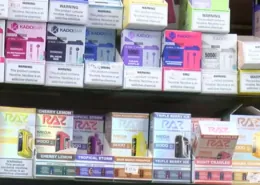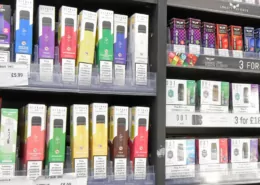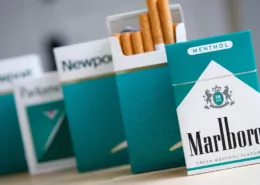UK Vape Store VPZ Boss Backs Ban on Disposable Vapes
In the fast-paced and ever-evolving landscape of the vaping industry, there are a plethora of discussions and regulations taking place. One such pressing issue that is currently garnering significant attention and debate is the potential ban on disposable vapes. Leading the charge in support of this ban is Doug Mutter, a major stakeholder in the vaping industry and an unlikely advocate for regulation.
Understanding the Proponent
As a representative of VPZ, a leading manufacturer and retailer of vaping products based in the historic city of Edinburgh, Doug Mutter presents an insightful view on the matter of disposable vapes. He contends that a comprehensive ban on disposable vapes could be a revolutionary step for the industry, provided it does not give rise to a black market. His concerns stem from the Australian experience, where a similar ban has inadvertently led to the circulation of unsafe products, sold illegally in the absence of regulated, legal options.
The vaping industry is maturing, and with that comes a responsibility to consider the environmental implications of its products. Disposable vapes have been identified as a significant contributor to waste, an environmental challenge that calls for an immediate and effective solution. With each discarded vape, we risk not only littering our surroundings but also introducing potentially harmful substances into the ecosystem.
The Scottish government, alarmed by the accumulating environmental concerns, has commissioned an urgent review of the situation. The initiative was sparked by a campaign led by climate activist Laura Young. Young’s commitment to collect dozens of discarded disposable vapes each day during her walks with her beloved dog, Cooper, in Dundee, brought the issue into sharp focus. The review aims to gauge the extent of the problem and outline a range of potential solutions for consideration by the ministers.
Unpacking the Issues
To understand the urgent need for a review, one must understand why disposable vapes are considered problematic. Every disposable vape houses a lithium battery, which requires proper handling and disposal at a designated recycling facility. However, the harsh reality is that millions of these products are simply discarded haphazardly or thrown into general waste bins each year. Such mismanagement can lead to devastating fires at processing facilities, endangering lives and causing extensive property damage.
Disposable vapes pose not only an environmental problem but also a significant health risk, particularly to young people. The flashy designs and easy accessibility of these products make them highly attractive to this demographic. However, the potential long-term health risks are far from desirable. Health professionals are raising alarms about the potential damage these products might inflict on children’s lungs, with the extent of harm yet to be fully understood.
As the industry grapples with the issues surrounding disposable vapes, refillable vapes present a viable alternative. Not only do they prove to be more cost-effective in the long run, but they also offer a more sustainable option. By using refillable vapes, consumers can enjoy their vaping habit without contributing excessively to environmental degradation.
VPZ’s Stance
VPZ, with its extensive network of 150 stores throughout the UK, holds considerable sway in the vaping industry. Doug Mutter, who serves as a company director in addition to his role as the director of the UK Vaping Industry Association (UKVIA), holds a nuanced view on the place of disposable vapes in the market. He recognizes that disposable vapes offer a low-cost entry point for smokers who wish to try vaping without making a significant investment in a reusable kit. Nevertheless, he acknowledges the detrimental environmental impact of disposable vapes and the potential allure they hold for non-smoking youth.
Mutter advocates for a ban on disposable vapes, emphasizing the necessity of establishing effective penalties and law enforcement measures to prevent the emergence of a black market. He proposes a licensing scheme, funded by the retailers themselves, to regulate the sale of vaping products and ensure compliance with the ban.
Laura Young, whose tireless campaigning initiated the urgent environmental review, also concurs with the need for a ban. She still witnesses the proliferation of disposable vapes littering the streets daily. Young sees disposable electronic waste as a novel problem, one that requires a precedent-setting ban to discourage single-use electronics in other contexts.
Education as a Solution
Colin Forshaw, who manages the Suez plant, sees education as a crucial part of the solution. He stresses the importance of informing the public about the dangers of incorrect disposal of lithium batteries and vapes. Such education could help prevent damage and spontaneous combustion, thus mitigating the risk of large-scale fires.
Conclusion
It’s evident that disposable vapes have become a contemporary environmental and health challenge. Striking a balance between providing smokers with an alternative to tobacco and mitigating the environmental and health risks of these products is critical. A comprehensive ban, coupled with effective policing, could be a step towards achieving this equilibrium. For now, education, awareness, and interim solutions are paramount, as we await the results of the government review.
- Cambodia: Phnom Penh Bans Smoking & Vaping on “Walk Street” - August 16, 2025
- Mexico City Congress Approves Ban on Vapes & E-Cigs - August 16, 2025
- Is It Illegal to Vape or Smoke While Driving in Minnesota? - August 15, 2025









